We Want to Include YOU in Our Learning Community!
Find out what our students are learning this Fall and how you can contribute to their enrichment by sharing your culture, knowledge, experiences and expertise.
Units of Inquiry by Grade, Fall 2024
PreK: Sharing the Planet– We connect with our environment through curiosity and responsibility.
- Exploring our surroundings: Students demonstrate an understanding of personal space and shared spaces
- Actions can benefit or harm our learning spaces: Students can take actions that benefit their learning spaces
- Our responsibility in the learning spaces: Students can demonstrate their responsibility
LowK: How We Express Ourselves– People express their imagination and creativity in various ways.
- Using different materials to tell stories: Students experiment with different ways to share their experiences
- Ways we can communicate our creativity: Students experiment with new ideas
- Materials can be changed for a purpose: Students learn how to adapt
Kindergarten: How We Express Ourselves– Visual Art impacts the artist and the audience.
- Materials and processes used for visual art: How is art created?
- Responses to visual art: How do people react to visual art?
- How visual art forms are used to express and celebrate: In what ways is visual art used?
1st: How We Express Ourselves: People express ideas and experiences through performance.
- Common elements of different types of performances: Choice, mediums, practice…
- How light, sound and movement can impact a performance: How do we choose what a performance will look like?
- Responses to performances: How do performances affect performers and audiences?
2nd: Who We Are: Understanding ourselves impacts our well-being.
- The parts of well-being: Students look at what makes up our well-being
- How wellness changes in different stages of our lives: How does being well change as we do?
- How we spend time influences our state of balance/well-being: Our actions and thoughts influence our well-being
3rd: How We Express Ourselves: People create messages to target or influence a specific audience.
- Tools and strategies used to persuade: Who do we need to persuade, and what is the best way to do so?
- Understanding the perspective of the audience: Who are we communicating to? Does that change our strategies?
- Critically evaluating messages: What is being communicated? Who is doing it? Who is the audience?
4th: How We Organize Ourselves: Governments structure how a nation is organized.
- Government systems: Types/forms of government
- Control of power: How is power created/used in different societies?
- How a government impacts its citizens: How are citizens affected by a government?
5th: Who We Are: Individuals can play a pivotal role in changing society.
- How people become leaders: Who/why do people choose to lead others?
- Approaches for bringing about change: How do people change what’s important to them?
- Qualities of leaders: Who can lead? What is needed? What is successful leadership?
Your culture, experience and expertise are invaluable
Many community members may often underestimate the value that their experiences, stories, cultures, and/or expertise can bring to our learning community, or wonder how they can support their child’s learning. Knowledge – experiential, cultural, or otherwise – is always valued in our community.
Examples:
- Though you may have a student in LowK, your job as a park ranger may be just what 3rd graders need as they work through ecosystems.
- Perhaps you have a cultural celebration that would support 1st grade as they move around during How We Express Ourselves.
- Maybe you have a family member, artifact, or just some great resources that you think 5th graders and PreK could engage with together.
All of these are ways that our community can continue to foster this sense of belonging, where all voices have the opportunity to be heard, celebrated, and shared.
